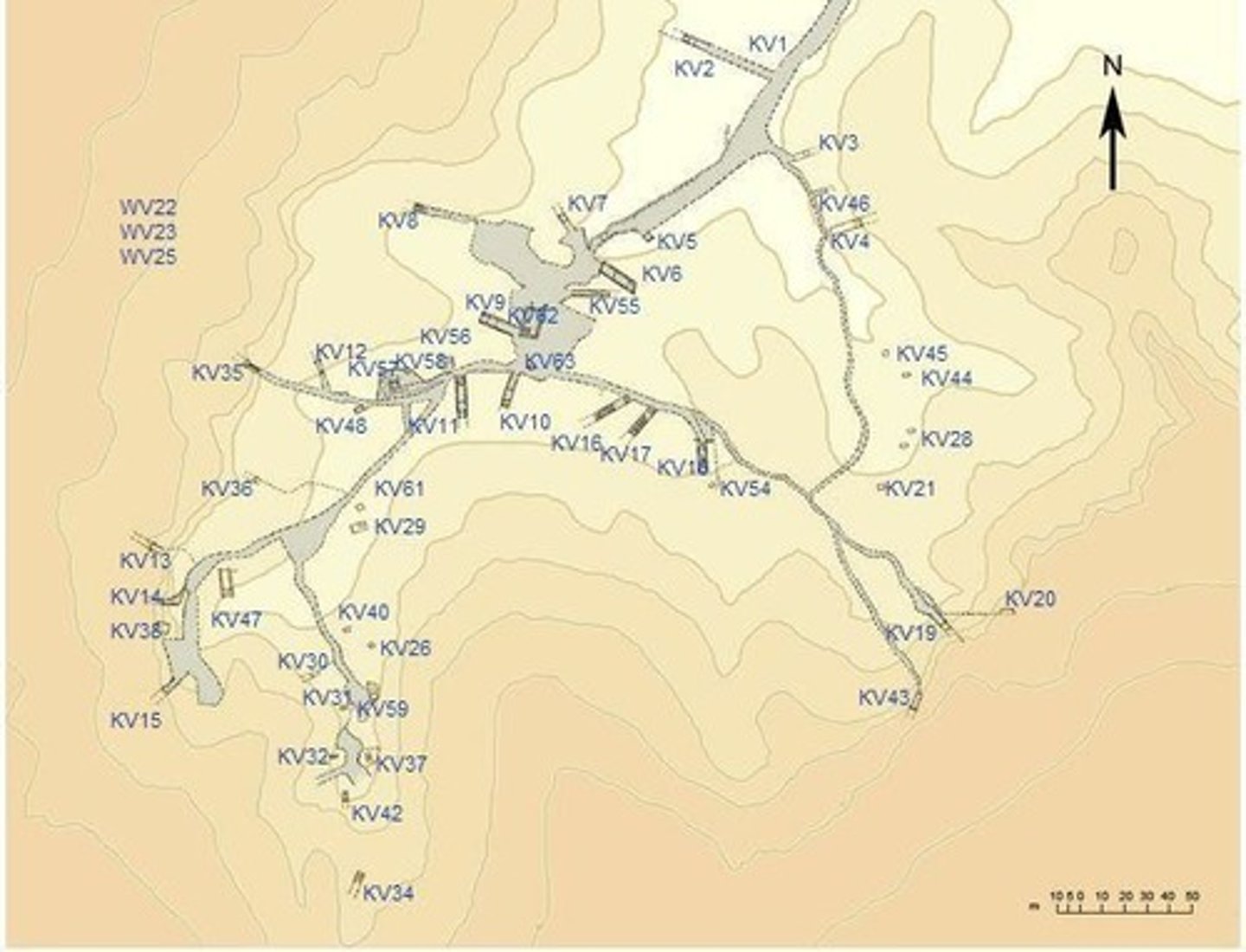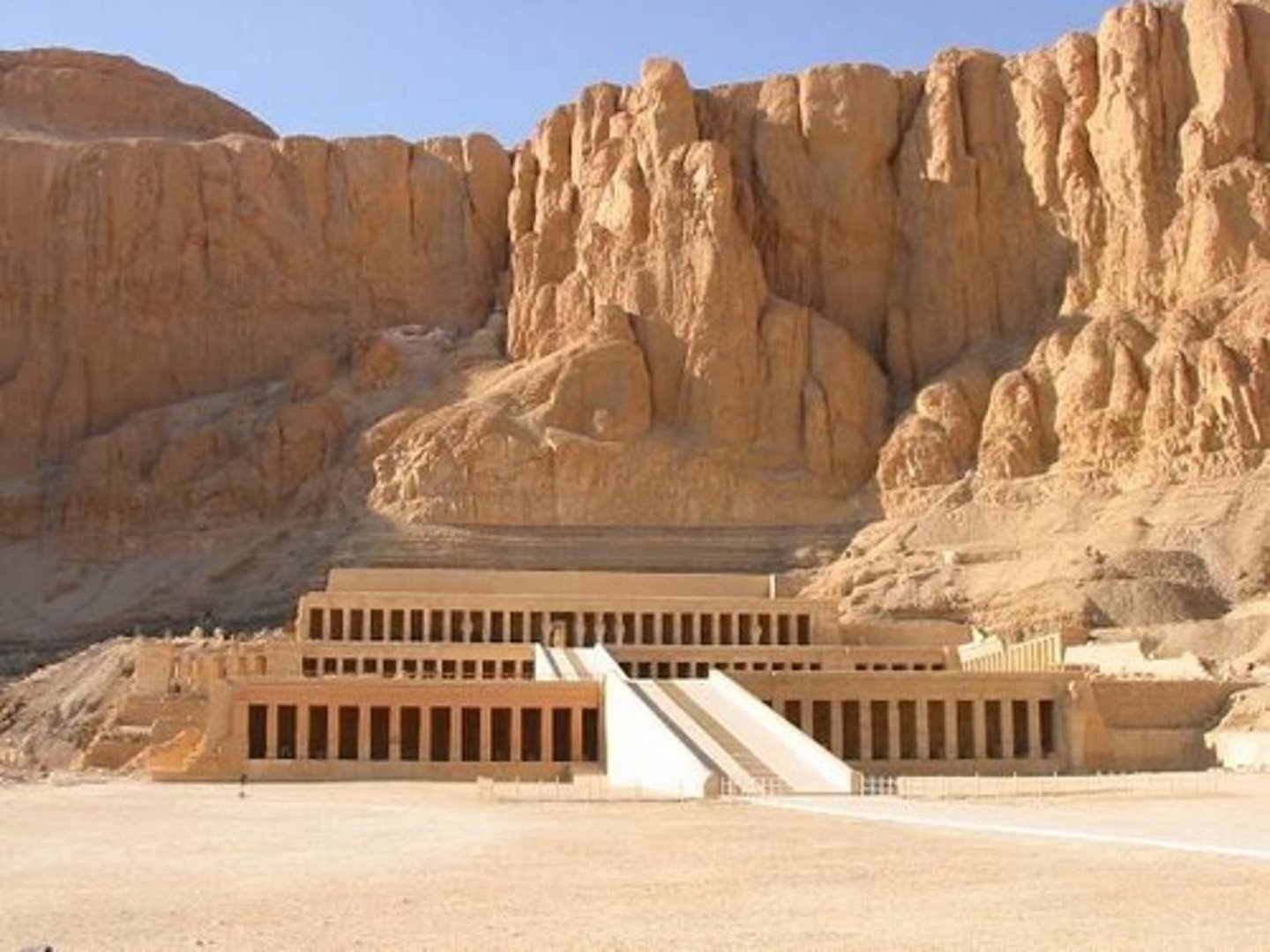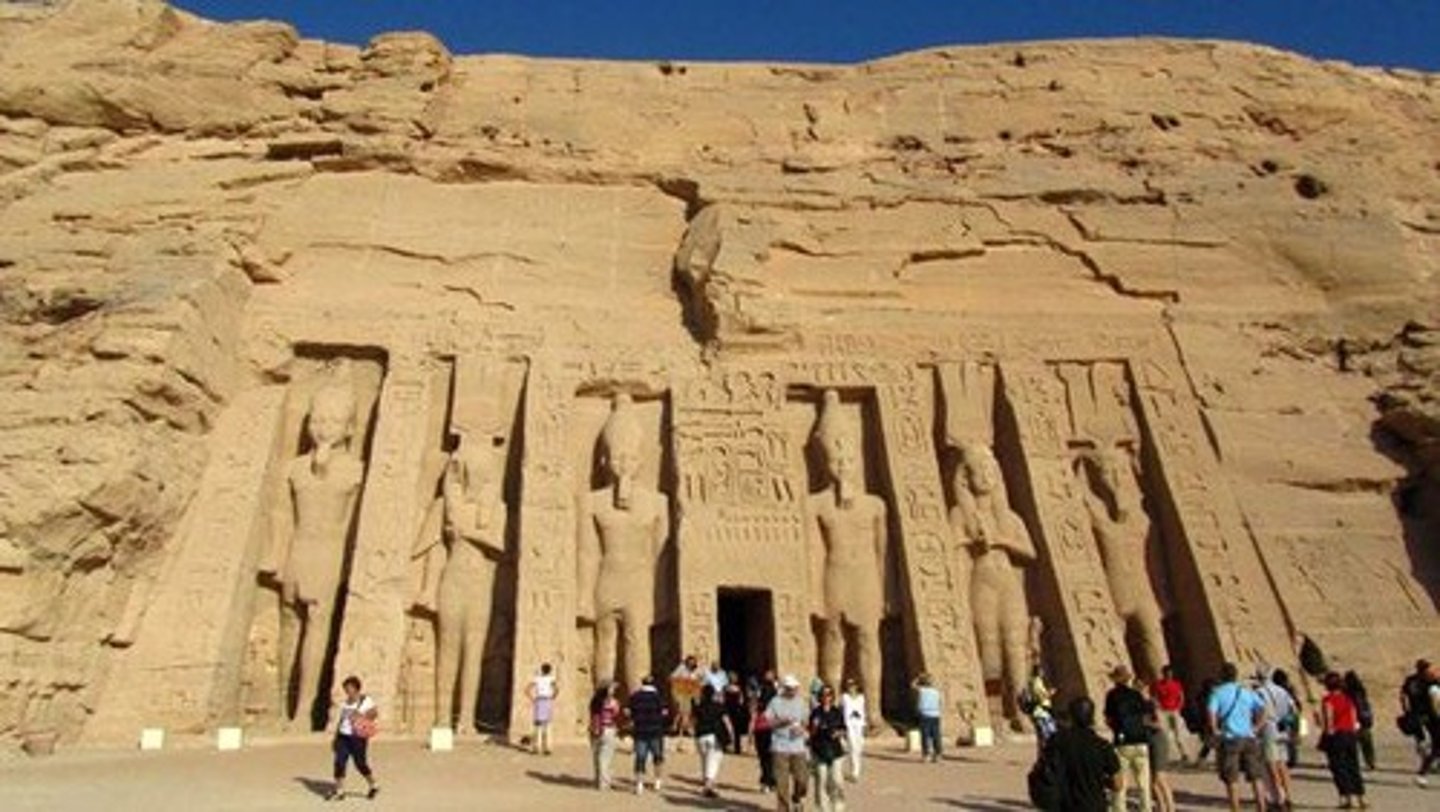Ancient Egypt: New Kingdom
1/21
There's no tags or description
Looks like no tags are added yet.
Name | Mastery | Learn | Test | Matching | Spaced | Call with Kai |
|---|
No study sessions yet.
22 Terms
New Kingdom
Period from 1550 to 1070 BCE in Egypt.
Valley of the Kings
Burial site for Egyptian pharaohs and nobles.

Hatshepsut
First female pharaoh of ancient Egypt.

Hypostyle Temple
Temple with a roof supported by columns.
Karnak
Large temple complex dedicated to Amun-Ra.
Luxor
Temple complex located on the Nile's east side.
Pylon Gate
Monumental entrance to Egyptian temples.
Abu Simbel
Temple complex built by Ramses II.

Tomb KV5
Burial site for Ramses II's sons.
Tomb KV20
Burial site for Hatshepsut's family.
Mortuary Chapel
Chapel dedicated to the god Amun.
Colonnaded Terraces
Terraces supported by columns in architecture.
Aswan Dam
Dam that threatened flooding of Abu Simbel.
Concrete Sarcophagus
Structure protecting relocated temple chambers.
Architectural Innovation
New techniques in ancient Egyptian architecture.
Clerestory
High windows allowing light into buildings.
Post and Lintel
Construction method using columns and beams.
Monumental Architecture
Large structures symbolizing power and beliefs.
Thebes
City with temples dedicated to various gods.
Tombs of Lesser Nobility
Smaller tombs cut into rock faces.
Burial Rituals
Ceremonies associated with the afterlife in Egypt.
Significant Architecture
Structures reflecting cultural values and beliefs.